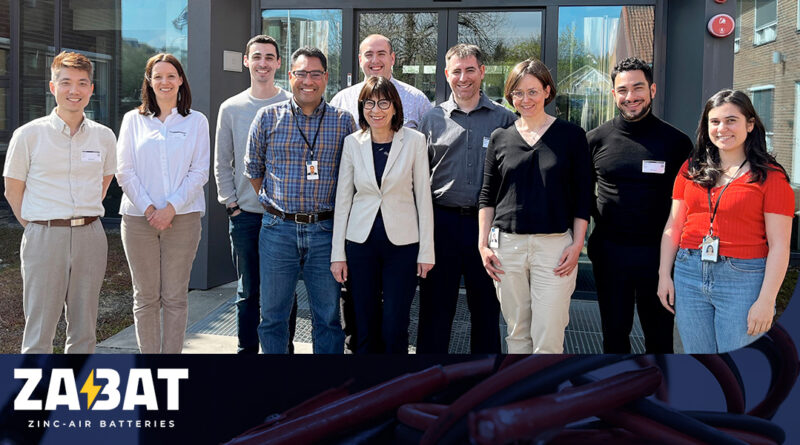ZABAT, starts the project that will develop the next generation of rechargeable, safe, and sustainable zinc-air batteries
ZABAT, starts the project that will develop the next generation of rechargeable, safe, and sustainable zinc-air batteries
- The project will enable the development of energy storage systems based on zinc, an abundant and safe material.
- ZABAT will allow the further development of rechargeable zinc-air batteries, being more sustainable and with improved properties which can be brought to the market at a faster pace.
- ZABAT, coordinated by Leitat and funded by the European Union, has the participation of 5 European entities ranging from technology centres, universities, and industry.
In a context of climate crisis and high environmental awareness, ZABAT is presented to help meet the EU’s energy storage and climate challenges in the medium (2030) and long term (2050). In particular, batteries are crucial for feeding intermittent energy such as wind and solar into the grid to be used when needed, e.g. at night when there is no solar power production, thus ensuring the stability and security of the European energy supply.
In this sense, ZABAT will develop and validate an electrical zinc-air rechargeable battery that allows energy storage. The project will develop long lasting batteries based on abundant zinc and without using critical raw materials as well as avoiding the use of environmentally toxic organic-based electrolytes.
ZABAT will also address the environmental impact, toxicity of materials and processes related to electrical rechargeable zinc-air batteries through sustainability and circularity assessments. In this way, the consortium claims to develop an energy storage system with an environmental impact as low as possible. Therefore, air will be used in the cathode, thus reducing the weight of the battery and improving its characteristics and environmental impact.
Leitat will play a crucial role with the coordination of the activities, facilitating its expertise in formulations of the rechargeable zinc-air battery and will be supported by a consortium formed by 5 entities: SINTEF Industry (electrolyte and cell development), Fraunhofer (innovative air electrodes), Politechnika Wrocławska and HERAEUS (both dealing with alternative materials for air electrodes).
Project info:
- Duration: From March 2022 to August 2025 (starting date might differ per country)
- Total budget: 1.649.989,00€
- In the framework of M-ERA.NET, which contributes to the restructuring of the European Research Area (ERA) and funded by the Member States funding organization of project Zabat.
- This press release is part of the project PCI2022-13299 funded by MCIN/AEI/ 10.13039/501100011033 and by “European Union NextGenerationEU/PRTR”
Follow the project on:
- LinkedIn: https://www.linkedin.com/company/zabatproject/
- Twitter: ZABAT (@ZABATproject) / Twitter

Marc Belenguer, Senior Researcher of the project
“ZABAT will allow us to address a number of challenges presented by the rechargeable Zinc Air technology, which will allow us to mature the technology into a viable option adapted to the required needs.
Solving these initial challenges and analysing the evolution of the technology will allow us to determine the future steps to be taken”.

![]()

